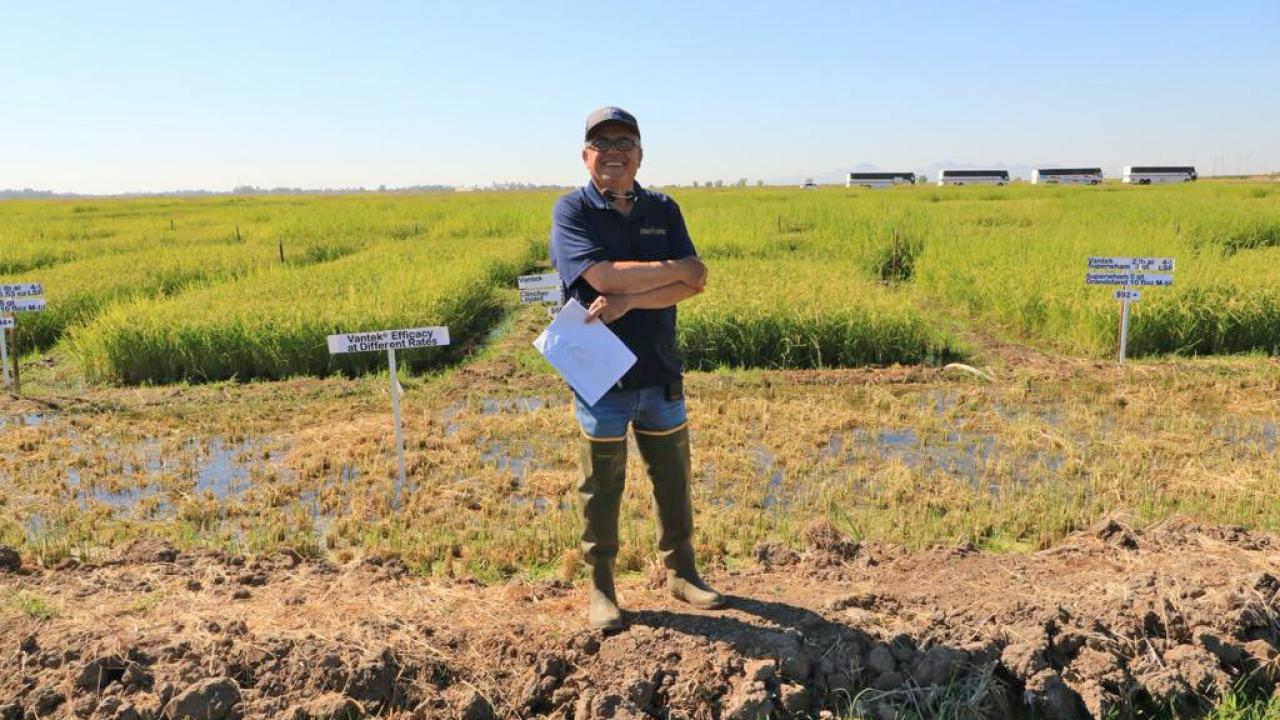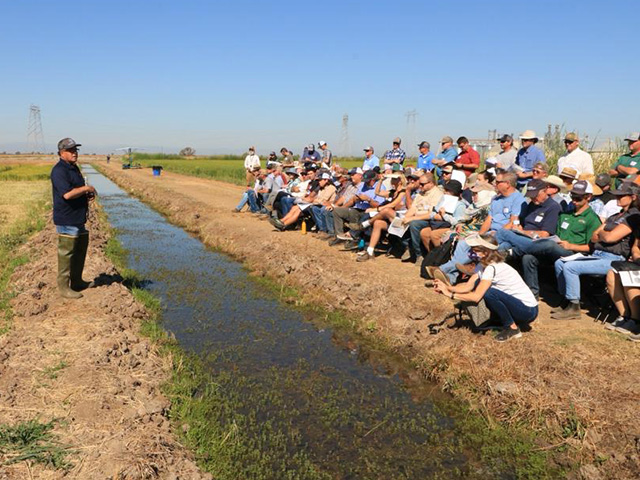
Pest control outreach will continue across the West
Al-Khatib: Western IPM Center receives $1 million
Growers will continue to get support and information about the latest research on controlling pests and disease in their crops through the Western Integrated Pest Management Center. The center received a $1 million grant for the 2023-24 year, part of ongoing yearly funding, said center co-director Kassim Al-Khatib.
The Western IPM Center is one of four regional centers nationwide that offer hubs to study, experiment with and promote sustainable pest control practices. The aim is to spot regional problems and find solutions.

“The main thing for us is to have the flow of information,” said Al-Khatib. He is the Melvin D. Androus Endowed Professor for Weed Science in the UC Davis Department of Plant Sciences.
The Western IPM Center, based in Davis, supports anyone who needs help battling insects, weeds, diseases and other organisms – even bedbugs and feral pigs! – that affect cities, farms and wildlands. The center connects scientists, farmers, industry representatives, regulators and others across 14 western states, including Alaska and Hawaii, plus United States territories in the Pacific.
The center grants money for experiments, hosts working groups to address emerging issues and offers symposia and training to disseminate the latest best practices. The center also coordinates special projects dealing with invasive species, offers risk assessment of pests and provides an informational newsletter.
Five priorities for the coming year
Grant funding comes through the National Institute of Food and Agriculture, part of the U.S. Department of Agriculture.
Priorities for the center in the coming year, according to the grant summary, include five programs that will improve food security with:
- Regional infrastructure creating and supporting climate- and weather-based decision-making tools;
- Assessing crop losses from pests, plus the impacts of pest-management techniques;
- Improve responses to invasive species;
- Communicating with federal partners about pest management issues of concern to the West;
- Helping IPM practitioners to communicate risks and best practices.
Through these efforts, the center promotes the adoption of pest management approaches that are economically viable, ecologically prudent and safe for human health, according to the project summary.
Related Links
The Western Integrated Pest Management Center
The Western IPM Center just opened the application window for new grants, with grant information here. The deadline to submit applications is 5 p.m. PST Friday, Dec. 8. Projects selected for funding will begin in spring 2024.
There will be a live webinar at 2 p.m. PST Friday, Nov. 3, to review the RFA and answer questions from prospective applicants.
Media Resources
- Trina Kleist, UC Davis Department of Plant Sciences, tkleist@ucdavis.edu, (530) 754-6148 or (530) 601-6846
